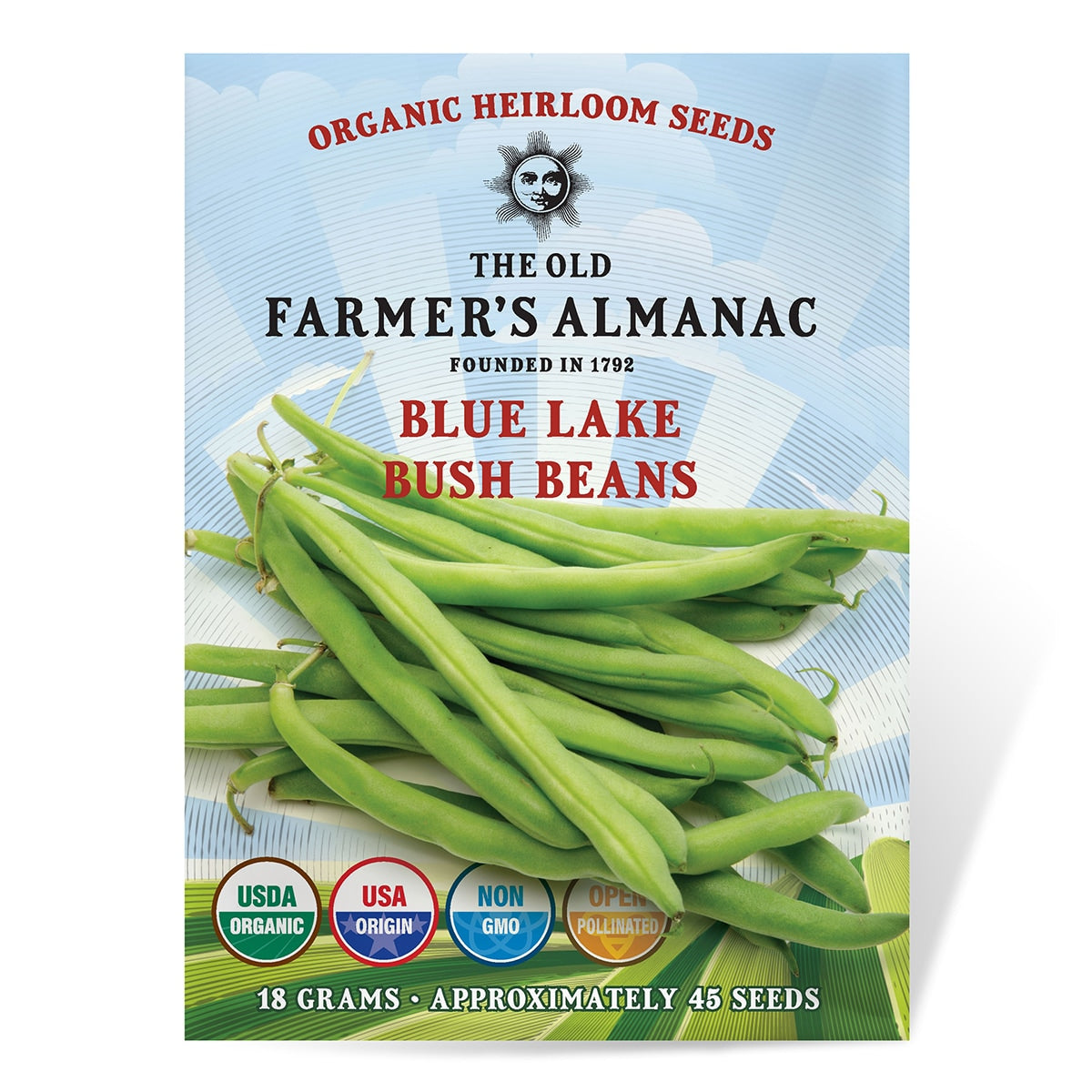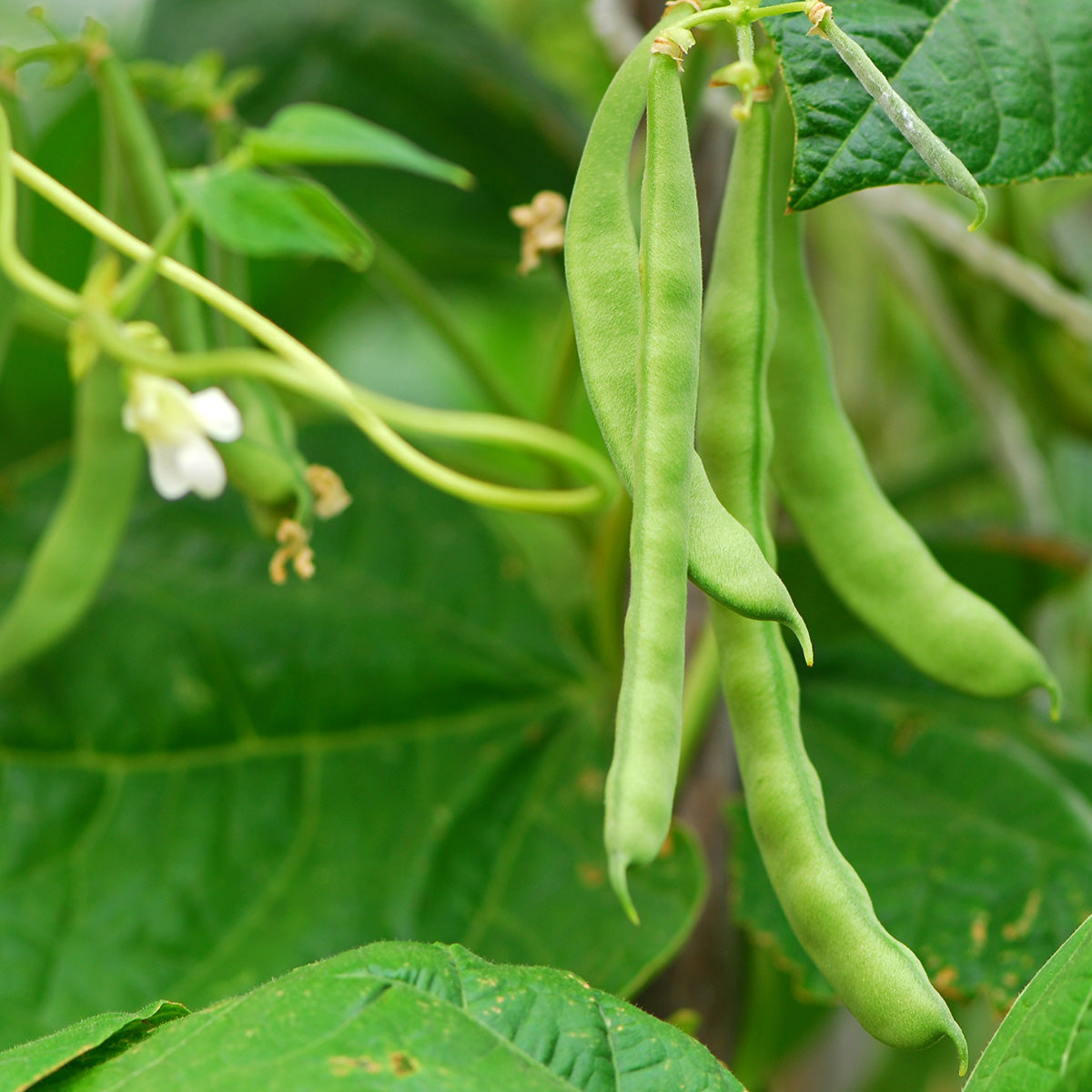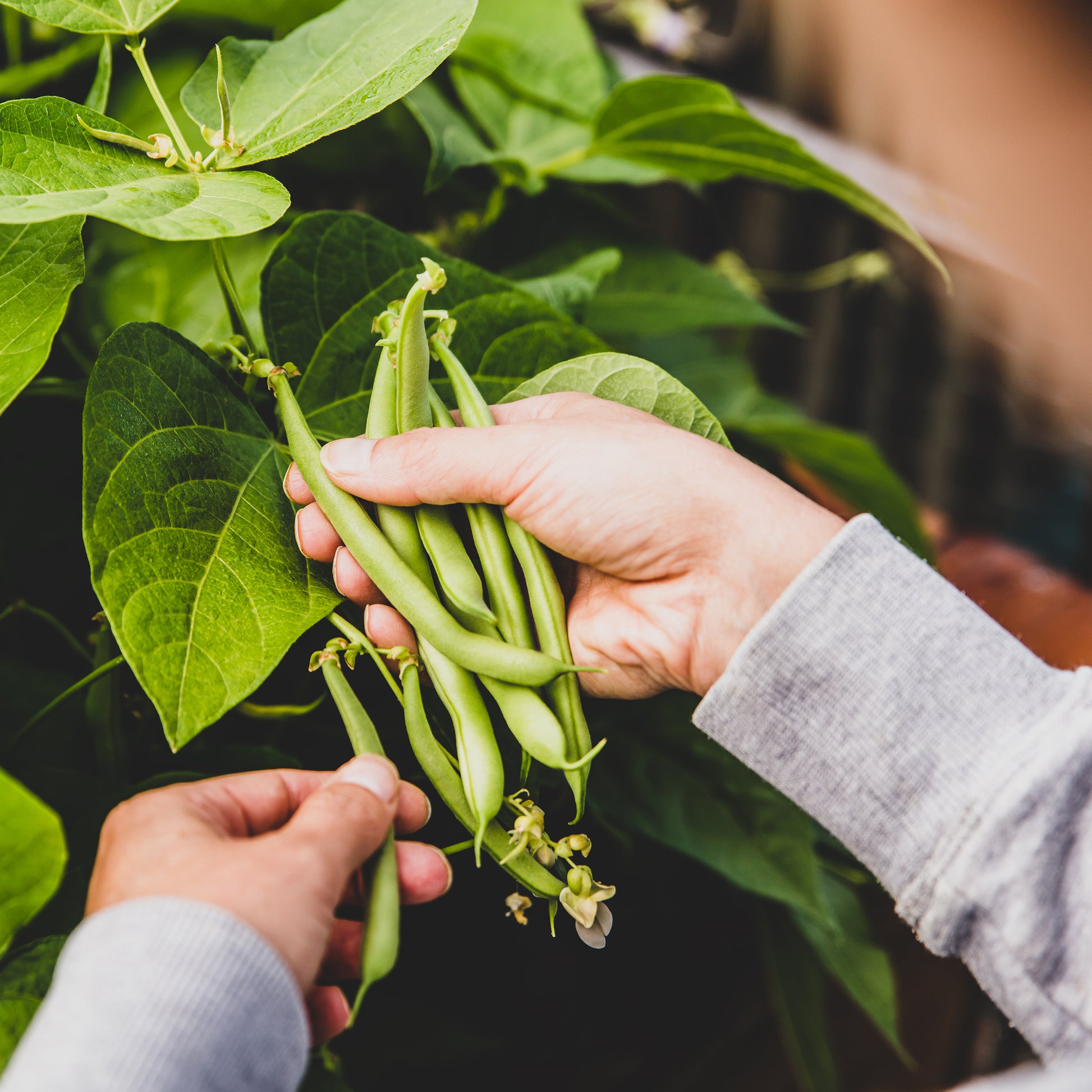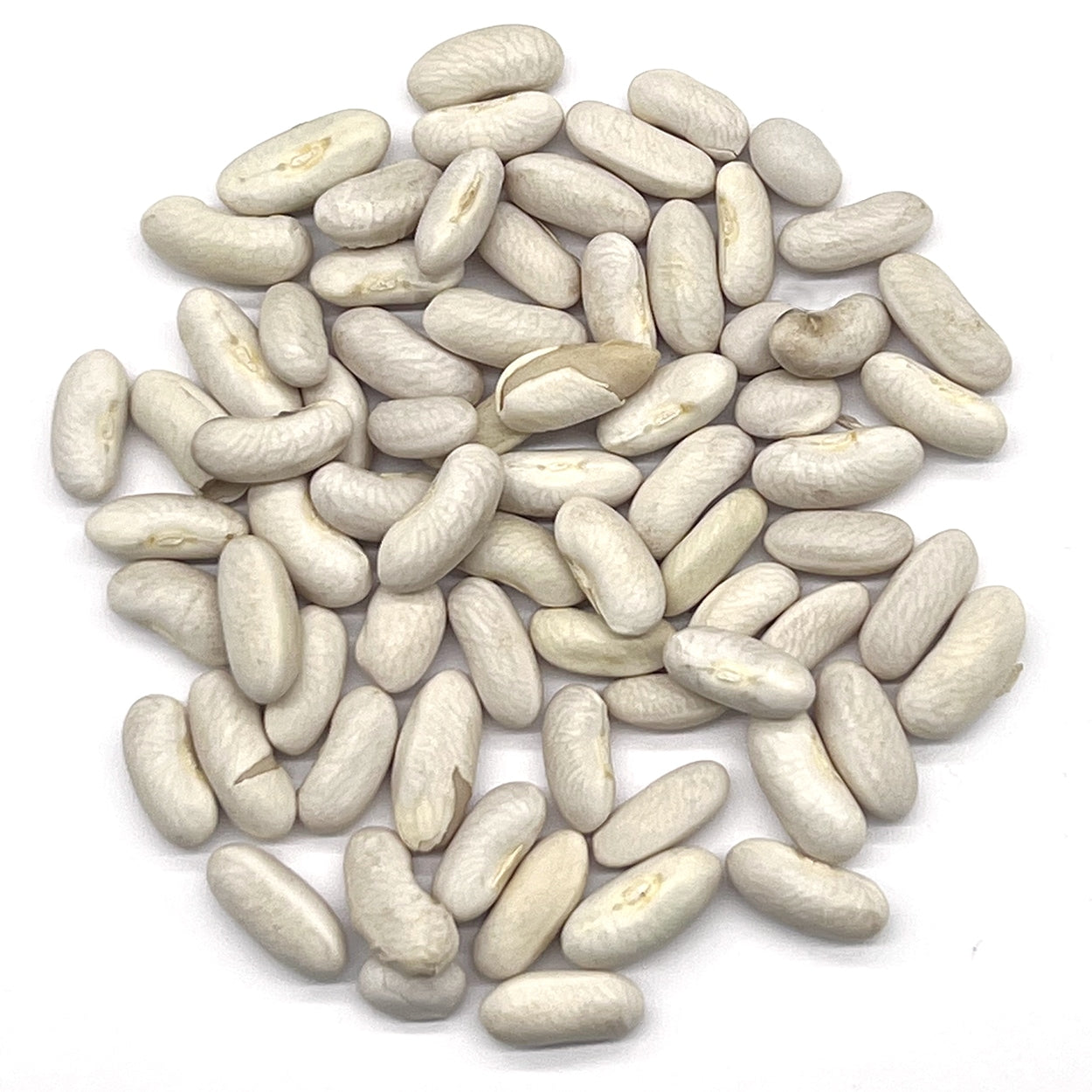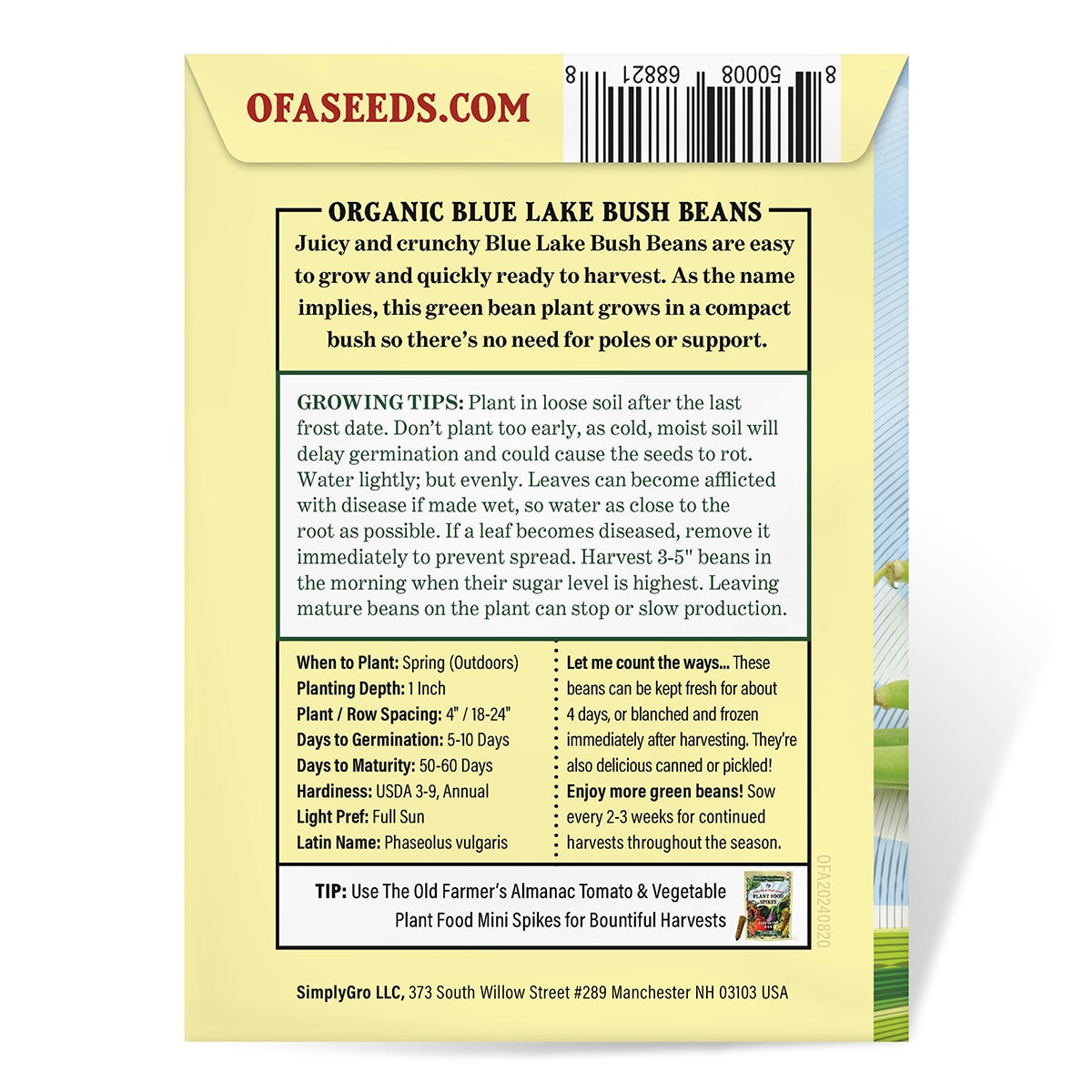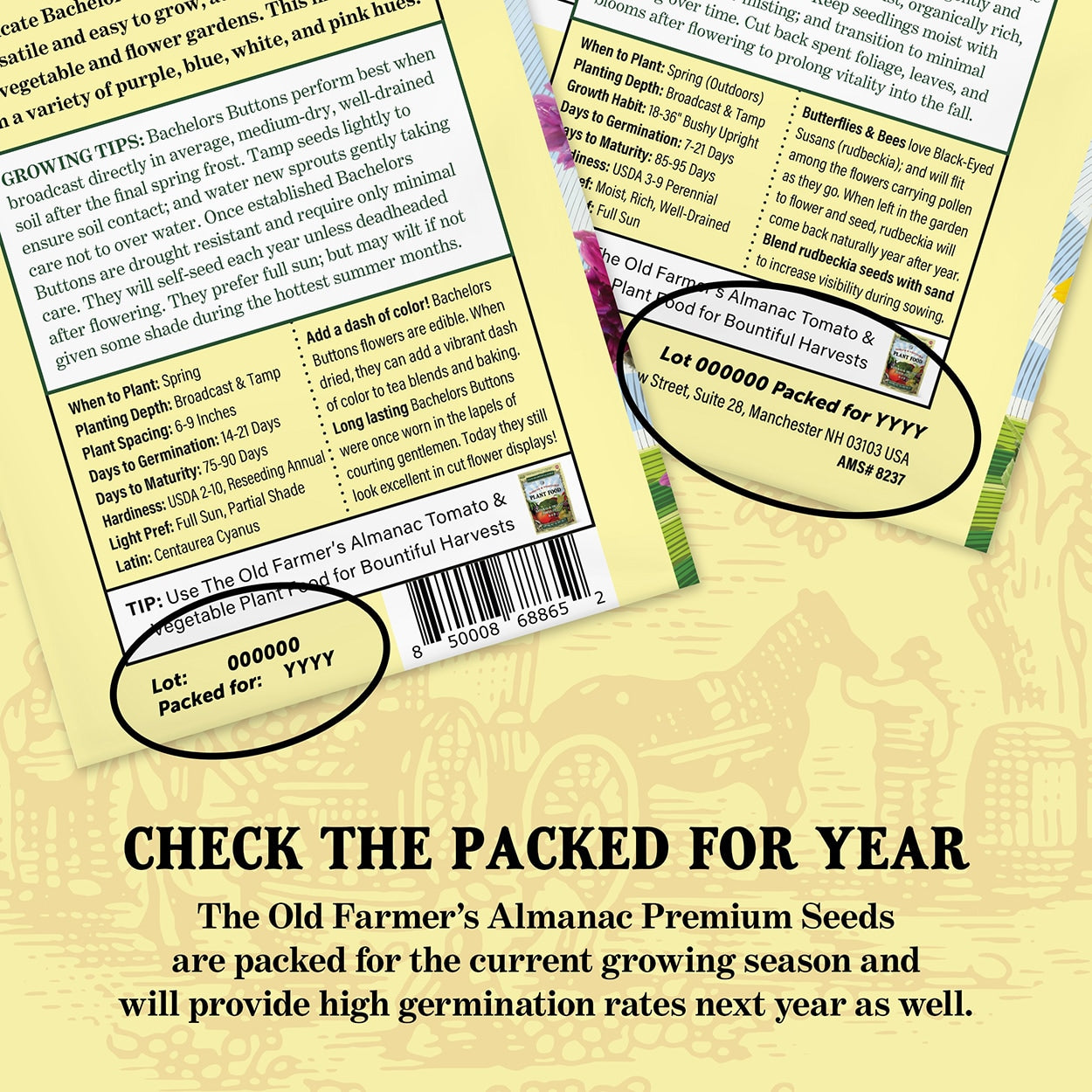Fabidae
The Old Farmer's Almanac Heirloom Blue Lake Bush Bean Seeds - USDA Organic
The Old Farmer's Almanac Heirloom Blue Lake Bush Bean Seeds - USDA Organic
Couldn't load pickup availability
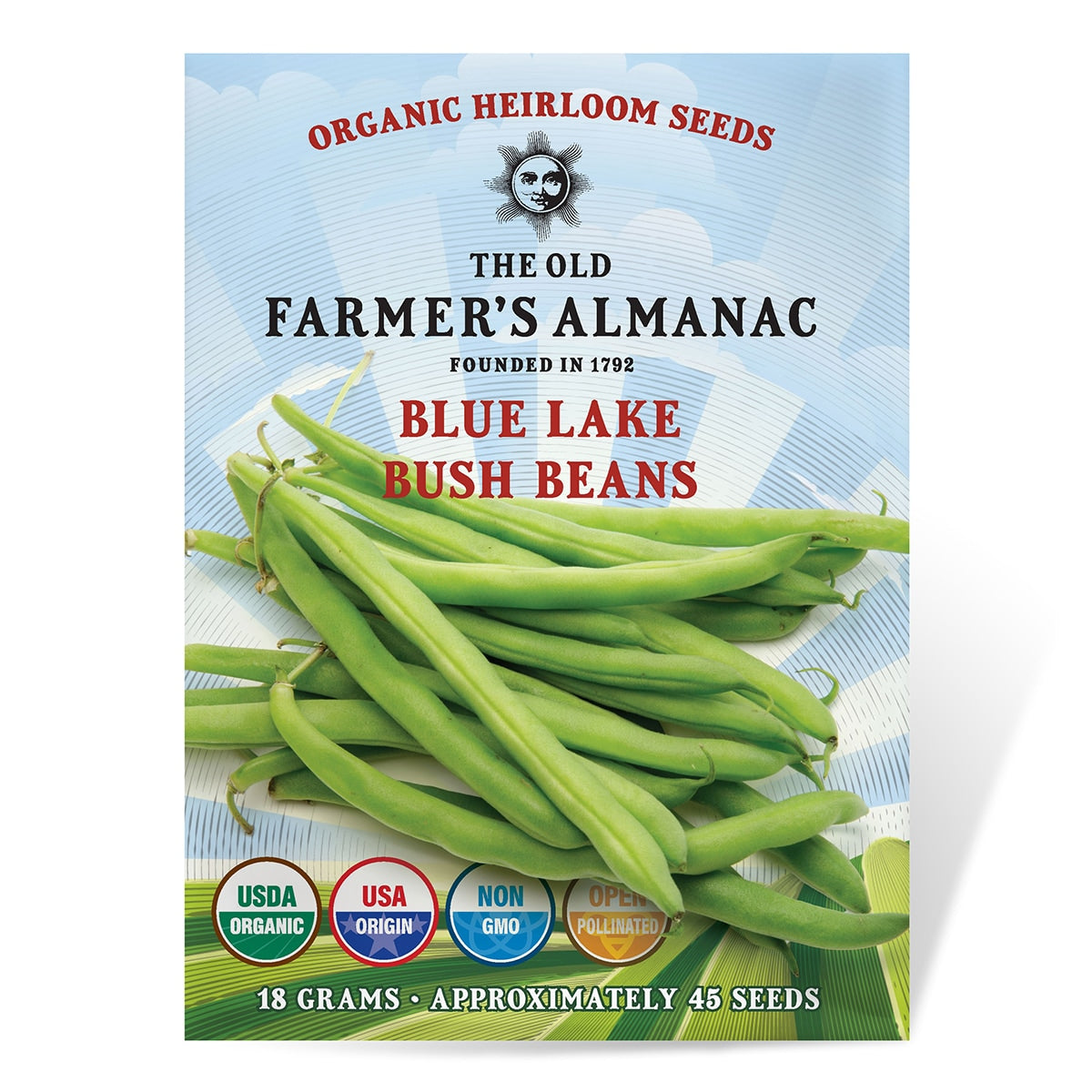
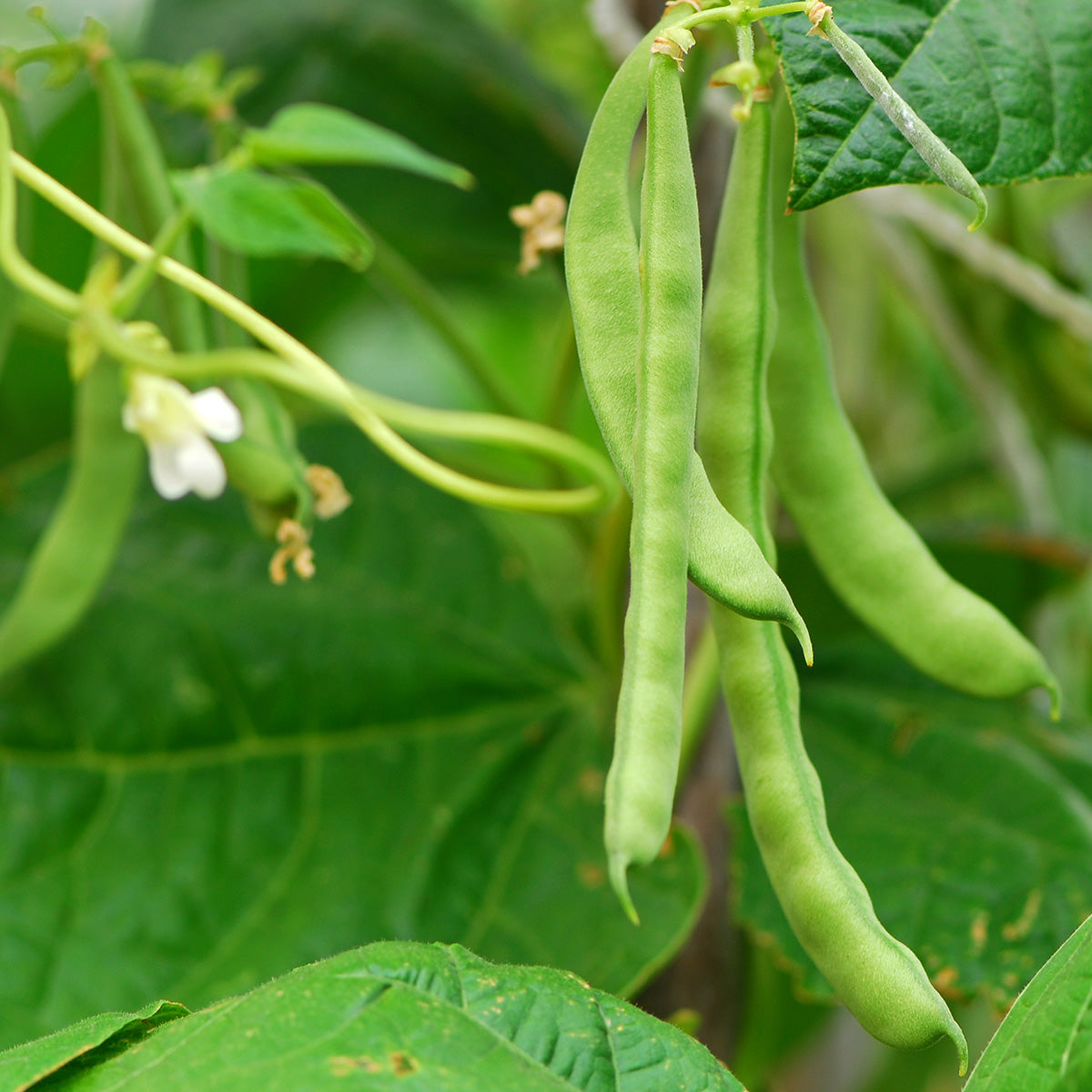
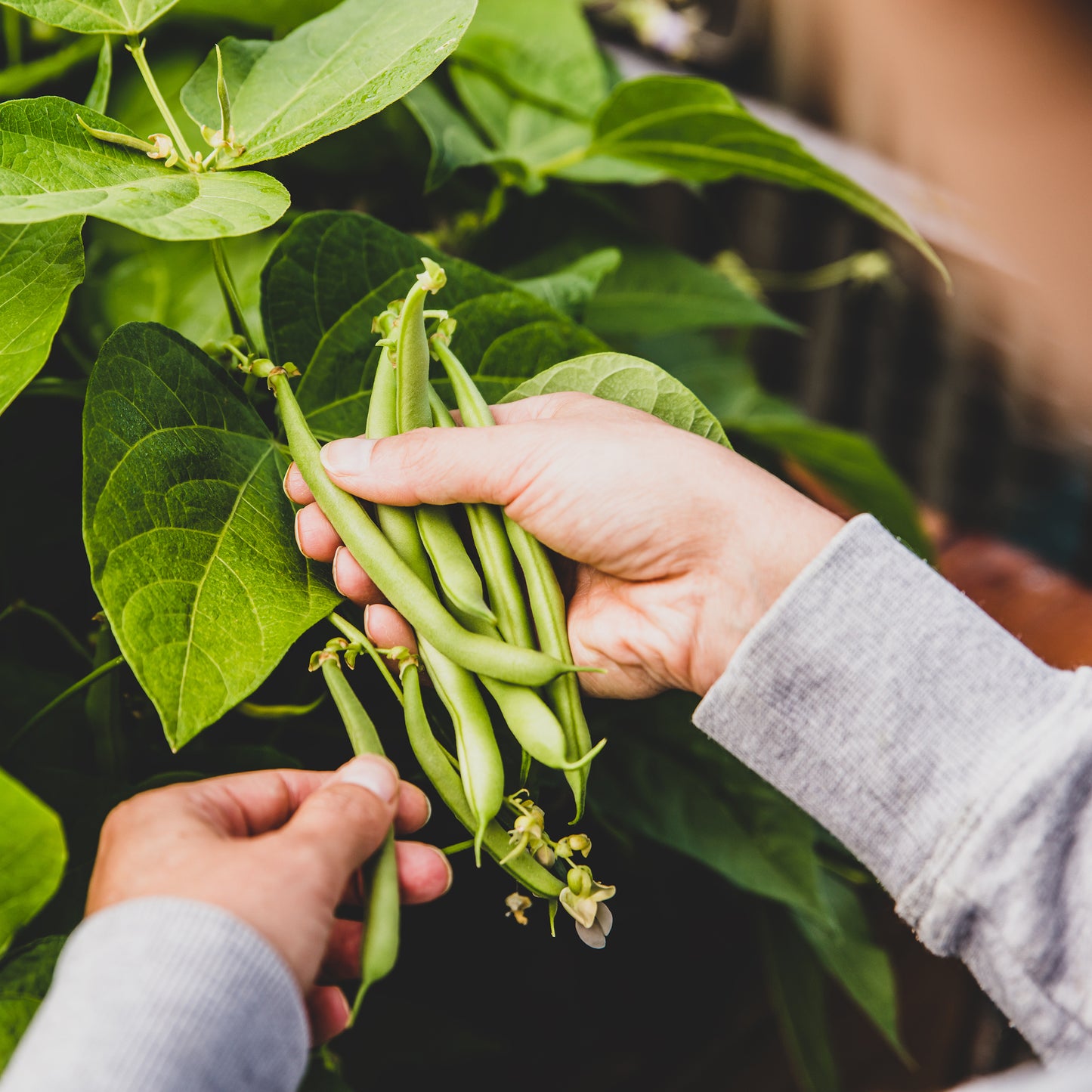
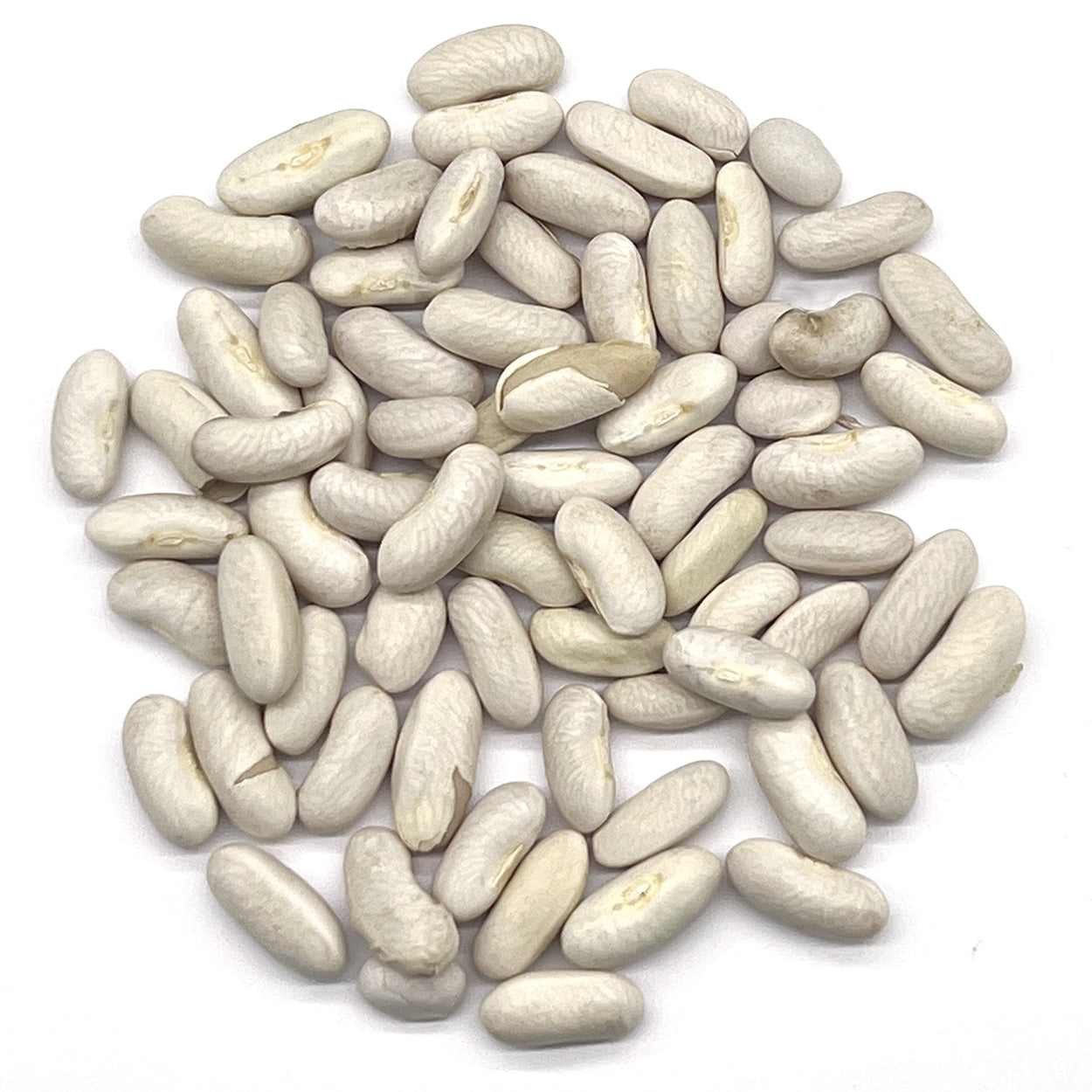
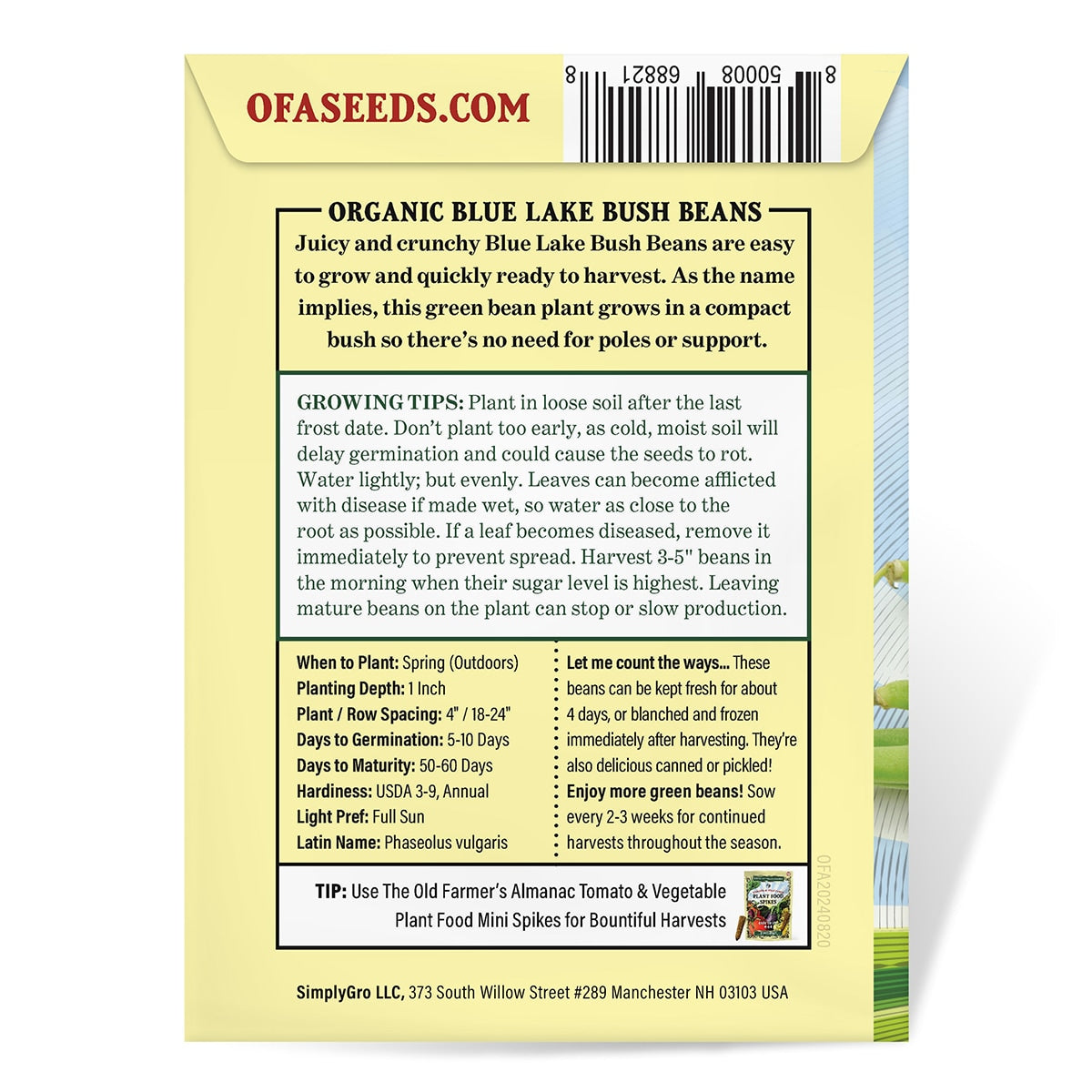

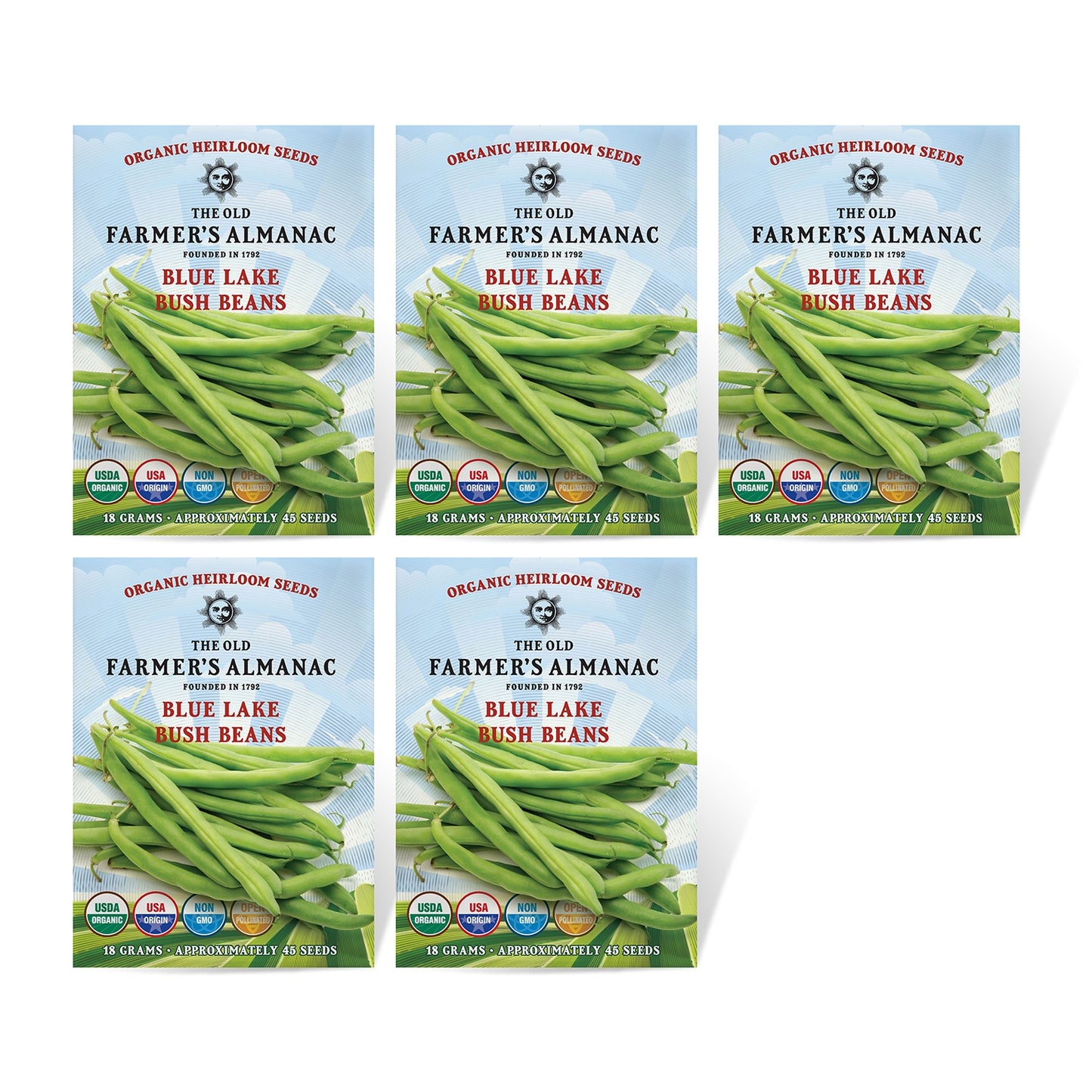
Collapsible content
DESCRIPTION
Freshly Packed: These seeds are packed for the current growing season and will provide high germination rates next year as well.
Premium Packaging: All seeds from The Old Farmer’s Almanac are packaged in individually styled packets ideal for gifts, storage or immediate use. Each packet displays the flower, vegetable, plant or herb variety on the front with instructions and plant facts on the back.
GROWING TIPS
Growing Tips: Plant in loose soil after the last frost date. Don't plant too early, as cold, moist soil will delay germination and could cause the seeds to rot. Water lightly; but evenly. Leaves can become afflicted with disease if made wet, so water as close to the root as possible. If a leaf becomes diseased, remove it immediately to prevent spread. Harvest 3-5 inch beans in the morning when their sugar level is highest. Leaving mature beans on the plant can stop or slow production.
Let me count the ways... These beans can be kept fresh for about 4 days, or blanched and frozen immediately after harvesting. They're also delicious canned or pickled!
Enjoy more green beans! Sow every 2-3 weeks for continued harvests throughout the season.
Wit & Wisdom: Beans are commonly used in everyday expressions to indicate something of little value. Consequently, someone who isn't worth a hill of beans is seen as being worth very little, although one could argue that today a hill of beans actually costs a pretty penny! Read The Old Farmer's Almanac Green Beans Growing Guide!
Companion Planting: Grow corn next to beans. Corn stalks will act as a trellis for your beans to grow up.

